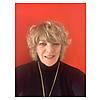Liberia: 'Women Are Fulcrum for Liberian Fisheries Sector' - NaFAA DG Glassco
Posted by Janice Scheckter on 17 February 2022 10:50 AM CAT

Published by Front Page Africa, 5 November 2021
.jpg)
Photo by Alexander Zvir from Pexels
Monrovia — At the start of a two-day international consultative fisheries meeting on the establishment of the Liberian chapter of the African Women Fish Processors and Trade Network (AWFISHNET-Liberia), the Director General of the National Fisheries and Aquaculture Authority (NaFAA) has described the role played by Liberian fishmongers/sellers (processors) as pivotal to the economic growth of the country's fisheries sector, adding that fishmongers determine the overall quality of the fish being consumed daily.
Madam Emma Metieh Glassco delivering the opening address at the forum on Monday November 1, 2021, said the role of Liberian fishmongers/sellers (processors) in the fisheries sector is critical to the sustainability of the economy, but pointed out that "they are vulnerable".
Speaking further at the occasion attended by several processors and fish-farmers from across Montserrado County among others, the country's fisheries management body boss added that women play a crucial role in ensuing food security, meeting nutritional requirements and sustaining the livelihoods of their families and communities and as such they determine the quality of fish eaten.
Despite the significant role played in the sector, Madam Glassco indicated that women are faced with daunting challenges including the absence of relevant tools and technical skills to enhance productivity, while identifying cultural practices and tradition as major barriers to the acquisition of land for fish farming.
"However, with all the importance women are to the sector, they are still faced with enormous challenges, such as lack of modern processing techniques, making them to work in hazardous condition, lack of preservation and cold storage facilities and transportation. Also, women in fishing are even more challenged, as they have to face cultural practices and traditions that denied them access to land for their farms".
She informed the gathering that the enormous challenges are reasons for the organization of the network of women fish farmers and processors. According to her, the organization is established to primarily focus on enhancing women in fish processing, fish sale and fish farming capabilities and potential for sustainable and equitable development, food security, poverty eradication and safeguarding of the environment. She said the Liberian government through NaFAA will provide the necessary support to addressing some of the challenges.
"As a network, we can speak with a louder voice and collectively engage our government and partners to remedy some of our challenges. This is indeed a great initiative. As a Government, and being a woman in the sector, we will provide all the necessary support in ensuring that this network plays an active role in growing the fisheries sector".
According to her, women remain the pillar for economic growth in the sector and their success as a network is a success for all.
The opening of the gathering was graced by representatives of the African Union Inter-Africa Bureau for Animal Resources (AU-IBAR) and African Women Fish Processors and Trade Network (AWFISHNET) Mrs. Funmilola Shelika and Dr. Annie Lewa respectively. The two will facilitate the formation of the network Liberia chapter.
Meanwhile, AWFISHNET is a Non-For-Profit, non-political and non-religious network that focuses to enhancing women's capabilities and potential for sustainable and equitable development, food security, poverty eradication and safeguarding of the environment. It a platform that seeks to strengthen women fish workers position and contribute to the SDGs and continental agenda of ending hunger in Africa and halving poverty by the year 2025, given their key role as active players in a fisheries sector and of African society in line with existing national, regional and global instruments, policies and strategies. The network exists as a coordinating body for all its members involved in fish processing and trade in Africa. Members use the network as a consultative mechanism to strengthen institutional coordination with respect to matters that affect their interest as women fish processors and traders at national, regional and globally.
The idea to establish the women's network of fish processors and traders was conceived in November 2016 during the African women's training on fish Handling, Hygiene and Sanitary and Phytosanitary (SPS) Measures along the Post- Harvest Value Chain. The founding members confirmed that a lack of such organization and institutional participation by women in the sector is a significant indicator and source of marginalization, where inequitable access to fisheries governance is directly related to inadequate and insecure access to resources. The network was launched in April 2017, in Dar Es Salaam Tanzania during the Consultative Workshop that declared its headquarters to be in Mwanza.
As a coordinating body for its members involved in fish processing and trade, AWFishNET exists to strengthen institutional coordination and collaboration with respect to matters that affect the interests of women fish processors and traders in Africa.
The overall objective of the network is to contribute to improving the welfare, working conditions and income of women in the fisheries sector (and especially women in the post-harvest sector) within the member states of the African Union.
The Network will provide a continental platform for women fish processors and traders to achieve the following.